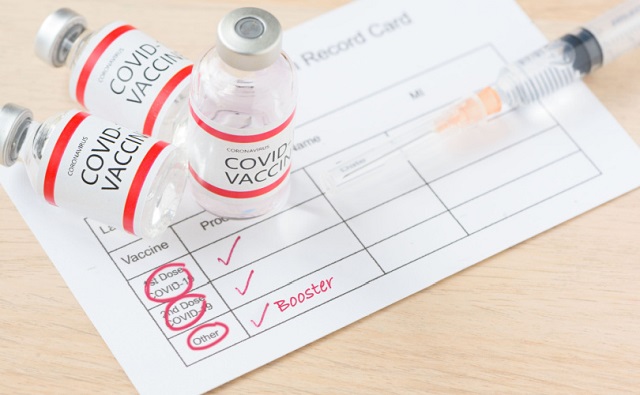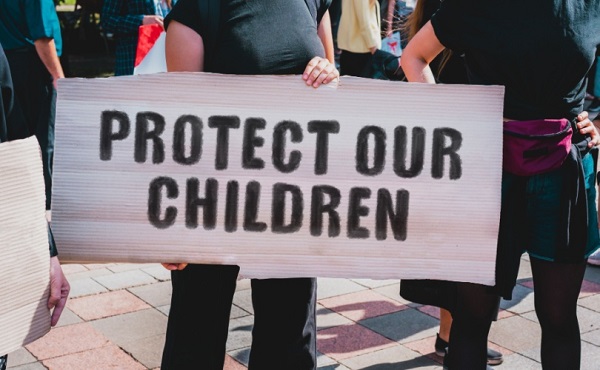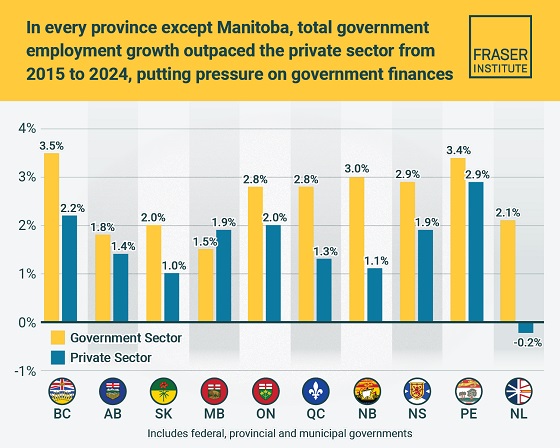COVID-19
New data shows most Canadians are shunning COVID booster shots

From LifeSiteNews
Only 14.6% of Canadians have had an ‘XBB.1.5 vaccine’ COVID booster, according to federal government data.
The majority of Canadians are flat-out refusing a COVID booster injection according to current information from the federal government, which has been heavily promoting the shots.
Data from the federal government’s COVID-19 vaccination: Vaccination coverage dashboard shows that only 14.6% of Canadians, about 5.7 million, have had an “XBB.1.5 vaccine” COVID booster.
For those under age 60, less than one-third have had a COVID booster. For those over 70, 44% have been injected with another COVID shot.
Even when it comes to Canadians over age 80, 52% have shunned a COVID booster.
In the age category of 0-4 years, only 3.5% have had a COVID booster. For Canadians ages 12-17, the take-up rate is 4.6%, with that number falling to 3.7% for ages 18-29.
Canadians from ages 30-39 have a 6.9% booster take rate, with 40- to 49-year-olds at 8.9%. Those ages 50-59 have a 13.5% booster take rate, with that number going up to 28.1% for ages 60-69.
Take-up of the COVID booster is lower in males, 13.3%, than in females at 15.8%.
The data is accurate as of December 8, 2023.
Canada’s low COVID booster take-up rate could be influenced by reports that the federal government under Prime Minister Justin Trudeau knew that the jabs could carry unknown risks when they signed the contract with Pfizer in late 2020.
The Trudeau government, with the help of the Department of Health, heavily promoted the COVID jabs, which were rushed to market. It is still promoting the recently approved booster.
In November, LifeSiteNews reported on how the recently disclosed federal government’s COVID-19 vaccine contract with Pfizer for millions of doses of the mRNA-based experimental shots shows the government agreed to accept the unknown long-term safety and efficacy of the shots.
The government had to acknowledge by signing the contract that the COVID shot and its materials were “rapidly developed due to the emergency circumstances of the COVID-19 pandemic” and would be further studied after their rollout.
LifeSiteNews reported last month how an information request from a federal MP asking Health Canada if it has any clinical data showing whether Pfizer-BioNTech’s latest COVID jab is effective and safe after its recent approval of the shot has revealed the agency has no such data on file.
Health Canada approved a revised Moderna mRNA-based COVID shot in September 2023 and later the Pfizer-BioNTech’s COVID jab despite research showing that 1 in 35 recipients of the booster have myocardial damage.
Of note is that Pfizer-BioNTech’s COVID jab only is said to target the COVID variant, XBB.1.5, which is all but gone in Canada. As of now, the dominant strain is EG.5.
Some provincial leaders refusing to disclose jab status despite media pressure
Some Canadian provincial leaders, such as Alberta’s Danielle Smith who opposed vaccine mandates and passports and ran her party leadership campaign on these issues, have flat-out refused to reveal whether they have had a COVID booster or even the original COVID shot.
Last month, Smith made clear to reporters she will not disclose her personal COVID vaccination status.
“I think that a private medical decision should be kept private, and I think this is the reason why we have doctors giving the advice,” Smith said.
Official data shows that about 15.5% of Albertans have chosen to get the COVID booster jab, which is on par with most provinces in Canada.
By comparison, neighboring British Columbia, which still has in place jab mandates for healthcare workers, has a 23.1% COVID booster uptake rate.
Health Canada ordered 238 million COVID injections from Pfizer Canada, which includes 30 million for 2023 and 2024.
The details of the Pfizer contract do not disclose how much the government spent on the jabs.
There is mounting evidence concerning the adverse effects they cause in many who have taken the COVID shots, including children.
For example, a recent study done by researchers with Canada-based Correlation Research in the Public Interest showed that 17 countries have found a “definite causal link” between peaks in all-cause mortality and the fast rollouts of the COVID shots as well as boosters.
LifeSiteNews recently detailed how a newly released government report shows that deaths from COVID-19 and “unspecified causes” surged after the release of the so-called “safe and effective” vaccines.
COVID-19
Crown seeks to punish peaceful protestor Chris Barber by confiscating his family work truck “Big Red”

The Justice Centre for Constitutional Freedoms announces that the Ontario Court of Justice will hold a hearing at 10:00 a.m. ET on Wednesday, November 26 at 161 Elgin Street, Ottawa, regarding the Crown’s attempt to permanently seize “Big Red,” the 2004 Kenworth long-haul truck relied upon by peaceful Freedom Convoy protestor Chris Barber and his family trucking business.
Constitutional lawyer Diane Magas, who represents Mr. Barber, is opposing the forfeiture.
“The impact of the forfeiture of ‘Big Red’, which is an essential part of the operation of Mr. Barber’s trucking business and is relied upon by Mr. Barber, his family as well as employees, is not what Parliament had in mind when enacting those forfeiture provisions, especially considering the context of a political protest where the police told Mr. Barber where to park the truck and when Mr. Barber moved the truck after being asked to move it,” she said.
Mr. Barber, a Saskatchewan trucker and central figure in the peaceful 2022 Freedom Convoy, depends on this vehicle for his livelihood. The Crown alleges that his truck constitutes “offence-related property.”
The November 26 hearing will address the Crown’s application to seize the truck and will include evidence regarding ownership and corporate title. The Court will also consider an application filed earlier this year by Mr. Barber’s family, who are asserting their rights as interested third parties and seeking to prevent the loss of the vehicle.
Mr. Barber was found guilty of mischief and counselling others to breach a court order following the peaceful Freedom Convoy protest, despite his consistent cooperation with law enforcement and reliance on legal advice during the events of early 2022. At sentencing, the Court acknowledged that he “came with the noblest of intent and did not advocate for violence,” emphasizing that Mr. Barber encouraged calm and compliance.
Mr. Barber said, “‘Big Red’ is how I put food on the table. I followed every instruction police gave me during the protest, and I never imagined the government would try to take the very truck I rely on to earn a living.”
COVID-19
New report warns Ottawa’s ‘nudge’ unit erodes democracy and public trust

The Justice Centre for Constitutional Freedoms has released a new report titled Manufacturing consent: Government behavioural engineering of Canadians, authored by veteran journalist and researcher Nigel Hannaford. The report warns that the federal government has embedded behavioural science tactics in its operations in order to shape Canadians’ beliefs, emotions, and behaviours—without transparency, debate, or consent.
The report details how the Impact and Innovation Unit (IIU) in Ottawa is increasingly using sophisticated behavioural psychology, such as “nudge theory,” and other message-testing tools to influence the behaviour of Canadians.
Modelled after the United Kingdom’s Behavioural Insights Team, the IIU was originally presented as an innocuous “innovation hub.” In practice, the report argues, it has become a mechanism for engineering public opinion to support government priorities.
With the arrival of Covid, the report explains, the IIU’s role expanded dramatically. Internal government documents reveal how the IIU worked alongside the Public Health Agency of Canada to test and design a national communications strategy aimed at increasing compliance with federal vaccination and other public health directives.
Among these strategies, the government tested fictitious news reports on thousands of Canadians to see how different emotional triggers would help reduce public anxiety about emerging reports of adverse events following immunization. These tactics were designed to help achieve at least 70 percent vaccination uptake, the target officials associated with reaching “herd immunity.”
IIU techniques included emotional framing—using fear, reassurance, or urgency to influence compliance with policies such as lockdowns, mask mandates, and vaccine requirements. The government also used message manipulation by emphasizing or omitting details to shape how Canadians interpreted adverse events after taking the Covid vaccine to make them appear less serious.
The report further explains that the government adopted its core vaccine message—“safe and effective”—before conclusive clinical or real-world data even existed. The government then continued promoting that message despite early reports of adverse reactions to the injections.
Government reliance on behavioural science tactics—tools designed to steer people’s emotions and decisions without open discussion—ultimately substituted genuine public debate with subtle behavioural conditioning, making these practices undemocratic. Instead of understanding the science first, the government focused primarily on persuading Canadians to accept its narrative. In response to these findings, the Justice Centre is calling for immediate safeguards to protect Canadians from covert psychological manipulation by their own government.
The report urges:
- Parliamentary oversight of all behavioural science uses within federal departments, ensuring elected representatives retain oversight of national policy.
- Public disclosure of all behavioural research conducted with taxpayer funds, creating transparency of government influence on Canadians’ beliefs and decisions.
- Independent ethical review of any behavioural interventions affecting public opinion or individual autonomy, ensuring accountability and informed consent.
Report author Mr. Hannaford said, “No democratic government should run psychological operations on its own citizens without oversight. If behavioural science is being used to influence public attitudes, then elected representatives—not unelected strategists—must set the boundaries.”
-

 Artificial Intelligence1 day ago
Artificial Intelligence1 day agoGoogle denies scanning users’ email and attachments with its AI software
-

 Alberta1 day ago
Alberta1 day agoPremier Danielle Smith says attacks on Alberta’s pro-family laws ‘show we’ve succeeded in a lot of ways’
-

 Business19 hours ago
Business19 hours agoBlacked-Out Democracy: The Stellantis Deal Ottawa Won’t Show Its Own MPs
-

 Alberta1 day ago
Alberta1 day agoNew pipeline from Alberta would benefit all Canadians—despite claims from B.C. premier
-

 Business2 days ago
Business2 days agoIs affirming existing, approved projects truly the best we can do in Canada?
-

 MAiD2 days ago
MAiD2 days agoHealth Canada suggests MAiD expansion by pre-approving ‘advance requests’
-

 Health1 day ago
Health1 day agoOrgan donation industry’s redefinitions of death threaten living people
-

 Business2 days ago
Business2 days agoTaxpayers paying wages and benefits for 30% of all jobs created over the last 10 years






